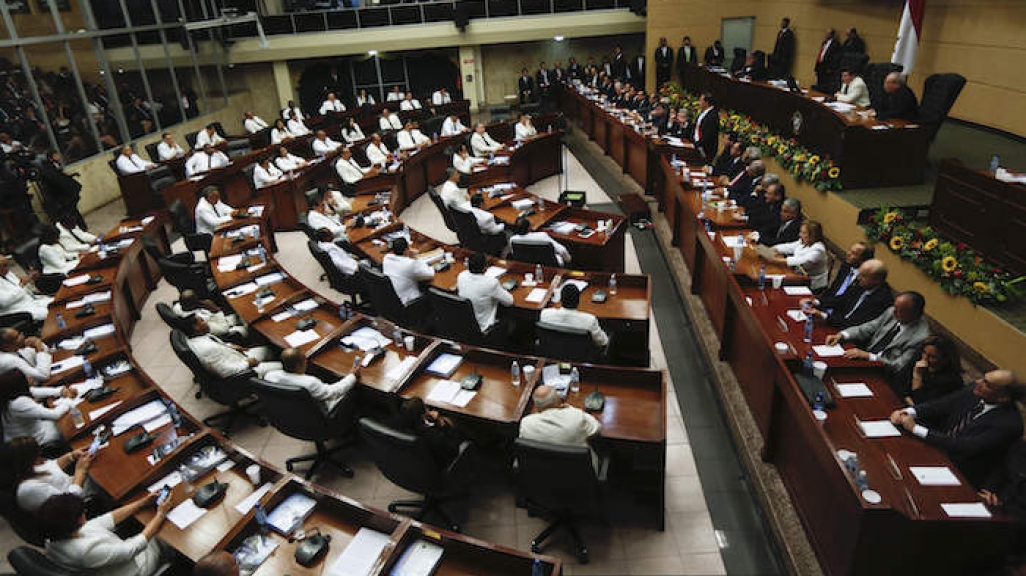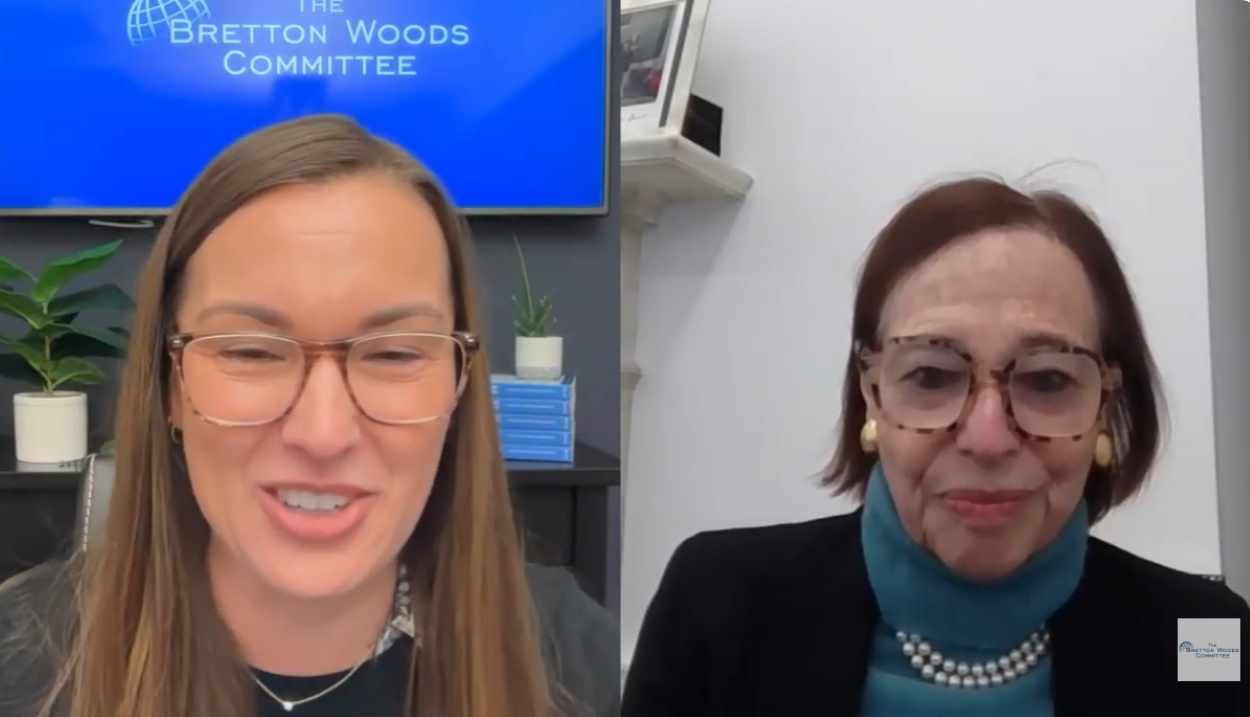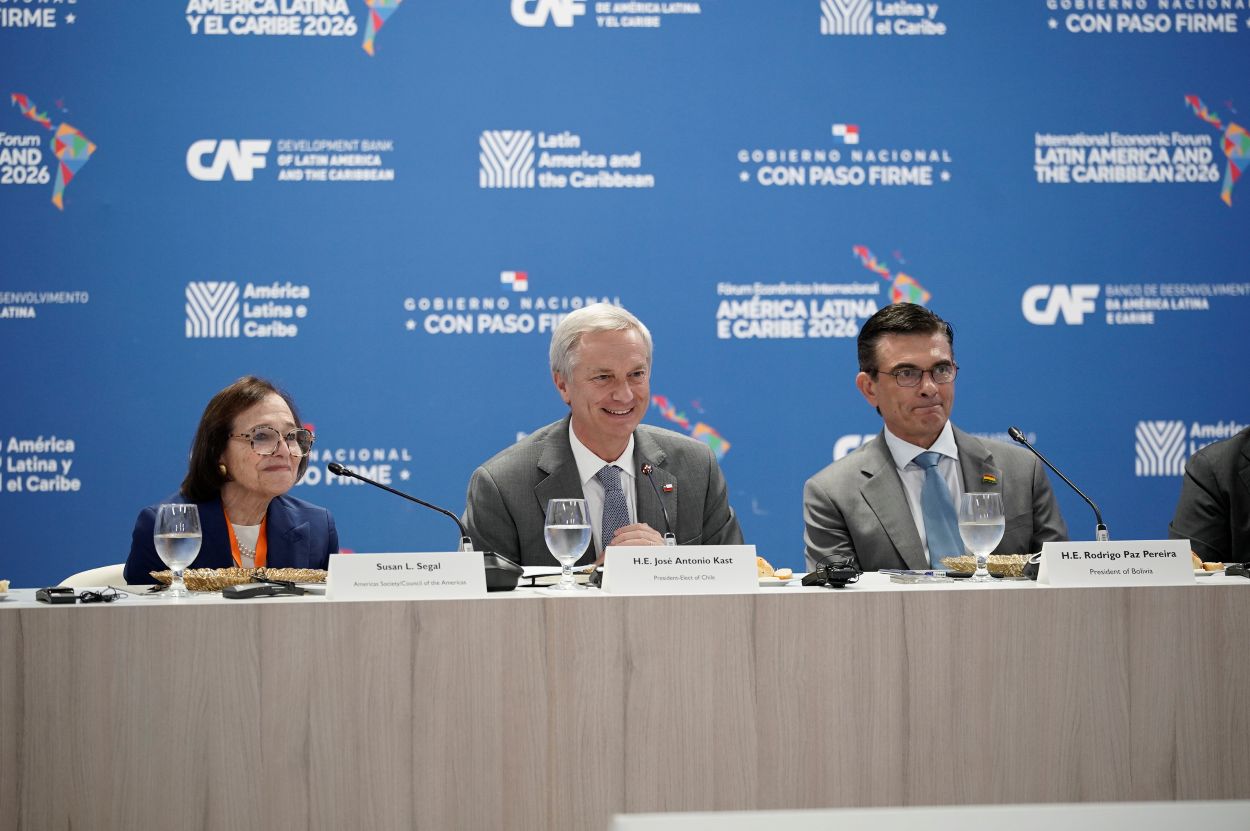Panama's Constitutional Reform Conundrum
Panama's Constitutional Reform Conundrum
After the National Assembly approved a package of constitutional reforms, President Laurentino Cortizo—and protesters—expressed concern over the amendments.
All eyes are on protests in Latin America, but those taking place in Panama, where a series of constitutional reforms are sparking controversy, have been largely overlooked. On July 18, President Laurentino Cortizo presented a series of constitutional reforms to Panama’s National Assembly. The reforms, which Cortizo promised during his presidential campaign, were delivered 16 days after his inauguration. Though the Assembly approved the package on October 28, escalating protests and Cortizo’s skepticism over the approved legislature have complicated the reform process.
Panama’s 1972 Constitution as a tool to combat corruption has been a hot topic in the country since the Panama Papers. In fact, that 2016 leak and the subsequent Odebrecht scandal made corruption the top voter concern in the country’s 2019 general election. The administration of then-President Juan Carlos Varela, who became ensnared in the Odebrecht probe, tried to include constitutional reforms in the May 5 ballot but was blocked by Panama’s Electoral Tribunal, leaving it up to Cortizo’s incoming government. Varela’s proposal would have let Panamanians choose how to amend the Constitution, either through a Constituent Assembly or, as has been the case, through legislative sessions.
Article 313 of the Panamanian Constitution outlines the process for approving amendments: two National Assembly sessions with three debates each followed by a national referendum on the changes. The unicameral Assembly has 71 deputies in which the current governing coalition comprises 35 members from Cortizo’s Democratic Revolutionary Party (PRD) and five members from the Nationalist Liberal Republican Movement, or Molirena.
What are the reforms?
Cortizo, who campaigned on an anti-corruption platform, initially introduced a reform package of 40 amendments largely focused on combating the problem at two levels: the Supreme Court and the National Assembly. Under Cortizo’s reforms, Panama’s autonomous attorney general could investigate Supreme Court justices and National Assembly deputies, effectively eliminating the system that allows the highest court to investigate the Assembly and vice versa. Moreover, the president’s proposal outlined a new process for appointing justices in which they would be chosen by the president’s cabinet from a list compiled by the Panamanian Development Council, a private-public sector agency that has been instrumental in supporting the president’s drafting of reforms. The National Assembly would later confirm these justices to terms of 15 years, up from the current 10 years. Among the other reforms, Cortizo also called for the creation of a Constitutional Court.
After three rounds of debates, Panama’s National Assembly approved its own reform package of 94 amendments and closed the first of two legislative sessions on the matter. Though the Assembly approved many of Cortizo’s proposals related to education, health, and the environment, others were replaced or modified. The body’s package significantly increases its own power and restructures how legislators are investigated, as well as who the Assembly has the power to investigate. Panama’s inspector general—rather than the national attorney general, as Cortizo proposed—would then investigate national deputies. In addition to investigating public officials, the inspector general represents the Panamanian government and administration and defends the interests of the state, and in that aspect, incorporates functions similar to those of the solicitor general in the United States. The national attorney general heads the Public Ministry, under whose auspices the inspector general operates.
Among the other powers, deputies could change the national budget without the president’s approval, set salaries for themselves, and hold a binding vote of no confidence on the president’s cabinet. The National Assembly would also retain its power to investigate and judge the president and be able to supervise investigations of judges and prosecutors.
Two of the most contentious proposals coming out of the Assembly involve constitutional amendments to Articles 14 and 52, which deal with immigration and marriage, respectively. An amendment to Article 14 would scrap the current text stating that immigration regulation should be based on the social, economic, and demographic interests of Panama. Instead, immigration would be regulated based on the protection of the national security, public health, and employment security of Panamanian nationals.
A revision of Article 52—which currently says that “the state protects marriage, motherhood, and family”—would be revised to say, “The state only recognizes a marriage between a man and a woman.”
The National Assembly, currently in recess, is expected to open its second legislative session and resume the next three debates in January. A referendum on the reforms will also take place in 2020, tentatively on October 4.
How have Panamanians reacted?
People have taken to the streets of Panama to protest the reforms. Protests escalated after the approval vote, leading to the arrest of over 90 demonstrators in late October, clashes between police and protesters, fires, and vandalism. In particular, protesters spoke out against the Assembly’s proposal to ban same-sex marriage.
Cortizo expressed concern over some of the Assembly’s proposals, including the body’s ability to change the national budget without executive approval, and ordered a special committee to review the reforms by November 7. The committee argued that at least 20 of the Assembly’s reforms should be modified. The president then reviewed the Assembly’s reform package, with input from the Panamanian Development Council and civil society organizations, and called on the Assembly to scrap four amendments, including the power to change the national budget and the ban on same-sex marriage. Meanwhile, the Assembly also opened up its floor for dialogue with constituents.
Amid the reform process, messages between Varela and top Panamanian officials, members of the Panama’s private sector, and international officials were leaked on November 5. The Varelaleaks website details revealed WhatsApp conversations from 2017 and 2018 in which the former president discussed the Odebrecht scandal among other topics with Attorney General Kenia Porcell. Following the leaks, the impartiality of the attorney general came into question, and Porcell subsequently announced her resignation as of January. Protesters are demanding an investigation into the messages, in particular the Public Ministry’s role in the Odebrecht investigation at a time when the attorney general’s powers are up for debate in the constitutional reform process.









